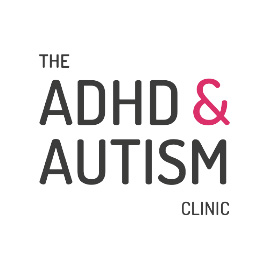Navigating ADHD Diagnosis and Treatment in Adulthood
Yes, adults can be treated for ADHD. Recognising symptoms, seeking a diagnosis, and exploring various treatments like medication, therapy, and lifestyle adjustments are crucial. Although emotionally challenging, managing ADHD as an adult is possible with support and tailored strategies.
Introduction
Attention Deficit Hyperactivity Disorder (ADHD) is a neurodevelopmental disorder in which there is inattention, hyperactivity, and impulsivity. Previously, it was thought that ADHD was limited to childhood with few cases persisting into adulthood. We now know that ADHD often persists into adulthood. Despite this, many adults remain undiagnosed and untreated. Let us look at the journey to ADHD diagnosis and treatment in adulthood.
Understanding Adult ADHD
ADHD symptoms in adults can manifest differently than in children. While hyperactivity may decrease, symptoms like impulsivity, disorganisation, and difficulty concentrating often persist. Challenges faced by adults with ADHD can significantly impact daily functioning, relationships, and work performance. Recognising these symptoms and seeking treatment is crucial for improving quality of life and overall well-being.
Adult ADHD Diagnosis
Diagnosing ADHD in adults involves comprehensive assessments and consideration of medical history, symptoms, and daily functioning. It is essential to address potential comorbid conditions like anxiety or depression, which can complicate diagnosis and treatment. Seeking professional help is the first step to establishing an accurate diagnosis and effective management. Understanding that symptoms of other conditions, such as PTSD or autism, can mimic ADHD symptoms underscores the importance of thorough evaluation by qualified healthcare professionals.
Processing ADHD as an Adult
Receiving an ADHD diagnosis as an adult can be life-changing for many people, but for some people, there can be a sense of disappointment and frustration that they were not told sooner. Many adults may have gone undiagnosed in childhood, leading to years of struggling without understanding the root cause of their challenges.
Coping with the emotional aspects of diagnosis and embracing tailored strategies for managing ADHD are important steps to improving day-to-day functioning. Support groups, therapy, and educational resources can help individuals navigate this process and build resilience. There is an ever-increasing awareness of ADHD, and hearing other adults’ stories is a powerful way of understanding more about the diagnosis and treatment journey.
Treatment Options for Adult ADHD
Treatment for adult ADHD typically involves a multimodal approach, including medication, therapy, and lifestyle modifications:
- Medication options: Stimulant and non-stimulant medications can help manage ADHD symptoms, but finding the right dosage and medication may require patience and collaboration with healthcare providers. Regular monitoring and adjustments are often necessary to optimise effectiveness and minimise side effects.
- Cognitive-behavioural therapy (CBT): CBT techniques can help adults develop coping skills, improve time management, and address negative thought patterns associated with ADHD. Individuals can better manage stress and enhance their overall well-being by learning to recognise and challenge unhelpful beliefs.
- ADHD coaching and skills training: Working with an ADHD coach can provide personalised support and strategies for managing daily tasks, organisation, and communication. Coaches can help individuals set realistic goals, track progress, and navigate challenges in various areas of life, from academics to career advancement.
- Lifestyle modifications: Implementing strategies such as creating routines, minimising distractions, and practising self-care can complement other treatment approaches and improve overall well-being. Regular exercise, adequate sleep, and healthy eating habits can also play a significant role in managing ADHD symptoms and enhancing overall quality of life.
Finding out more information
For more information on ADHD symptoms, diagnosis, and treatment, try to read well-informed sources of information. Avoid relying on information from unverified sources. Instead, visit reputable sources such as the NHS or HelpGuide.org.
Conclusion
Navigating ADHD diagnosis and treatment as an adult can be challenging but ultimately rewarding. By seeking help, understanding one’s diagnosis, and embracing tailored treatment options, individuals with ADHD can experience significant improvements in their daily lives and overall well-being. It’s essential to remember that ADHD is a manageable condition, and with the right support and resources, individuals can thrive and reach their full potential.
Ready to seek personalised care and support for yourself or a loved one?
Contact The ADHD and Autism Clinic today for comprehensive assessments, tailored treatment plans, and compassionate guidance. Take the first step toward a brighter future by scheduling a consultation.

